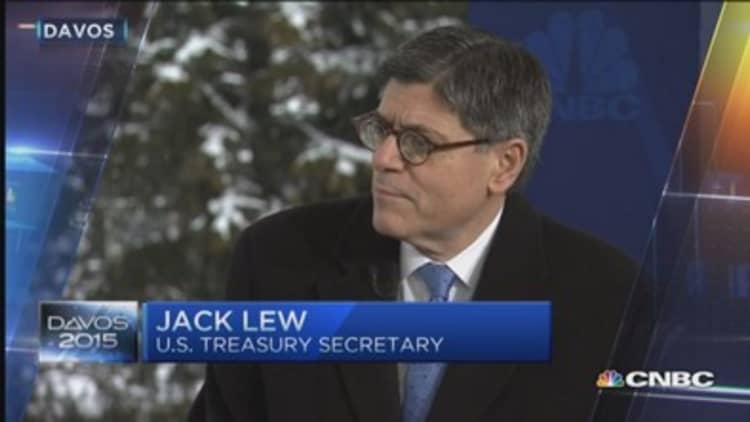A group of powerful central bankers and finance officials ended the World Economic Forum on an optimistic note on Saturday, citing the stimulative effects of low oil prices and aggressive monetary policy in Europe.
"Some pessimism prevailing in Davos this year is a bit exaggerated," Haruhiko Kuroda, governor of the Bank of Japan, said on a panel Saturday in Davos, Switzerland. His remarks echoed those of BlackRock CEO Larry Fink said the tone of WEF this year was less optimistic than last.
Kuroda said the more than 50 percent drop in the price of oil "could accelerate global economic growth in coming years." He also said that the European Central Bank's move this week to buy $60 billion in bonds a month, so-called quantitative easing, "would greatly improve the world economic outlook" given the region's leading role in global markets.
Lower oil is here to stay...for a while

Joaquim Levy, Brazil's Minister of Finance, said that lower prices "won't hurt us that much. In fact, I think it will be a positive."
Separately, Mark Carney, governor of the Bank of England, said oil prices will likely stay low for some time.
Read MoreWhy we were right on QE: ECB board member
"That creates an opportunity that is considerable and perhaps undervalued in terms of the outlook for the global economy," Carney said. The central bank boss added that he welcomed Europe's new QE program.
BlackRock's Fink, who moderated the discussion, agreed on oil and ECB bond buying as positive economic drivers, especially in emerging markets.
"It's a great opportunity to be in the emerging world," Fink said.






